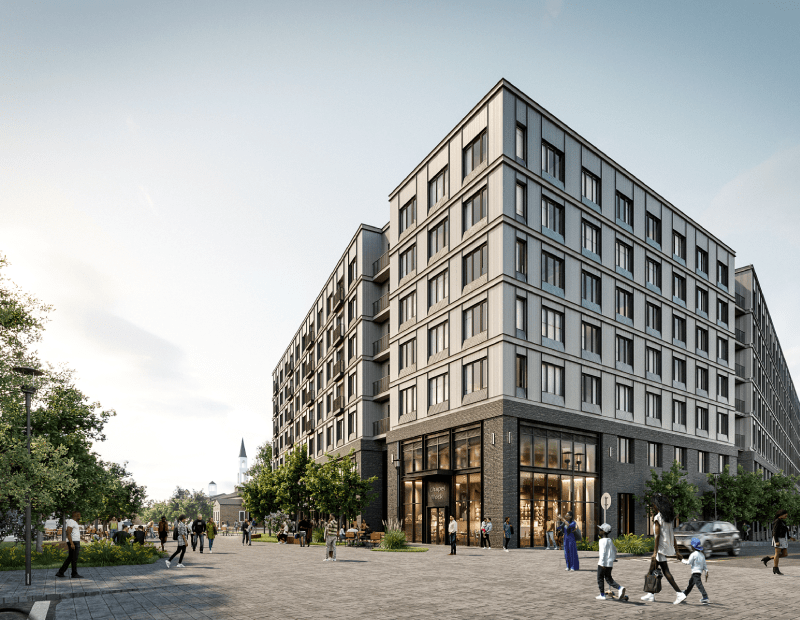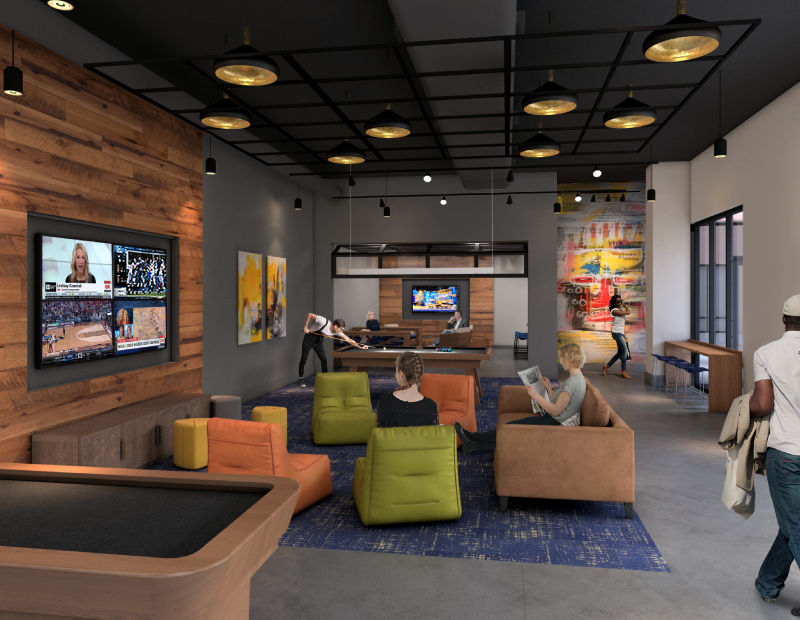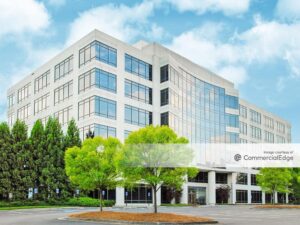How a Minority-Led Organization Is Making a Major Impact
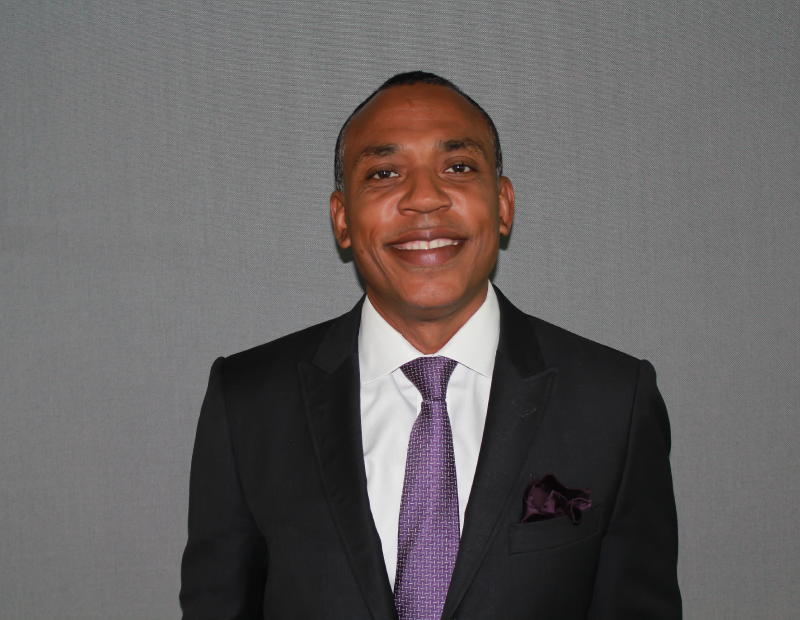
Minority-owned investment firms continue to break barriers and redefine industry standards. Basis Investment Group made history last year after acquiring a Freddie Mac B-piece in a CMBS pool exceeding $235 million.
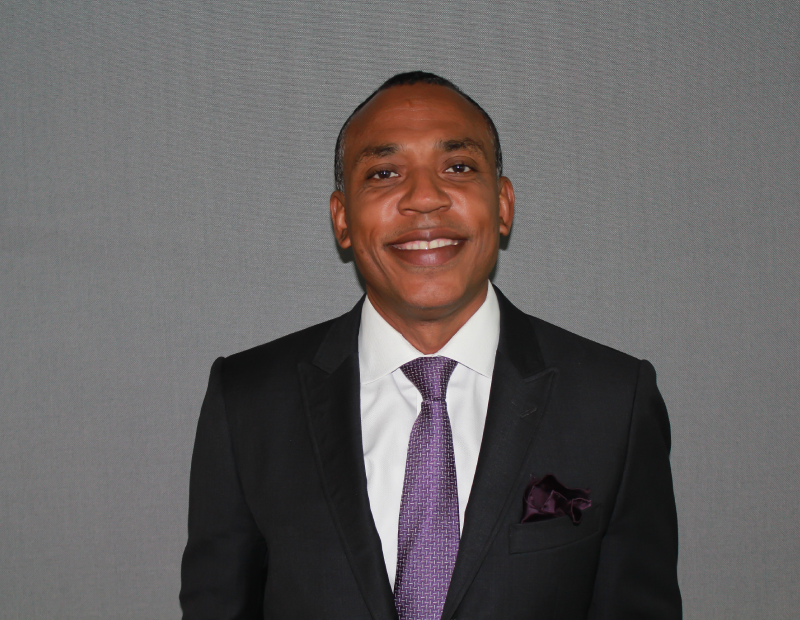
“Our firm was built on excellence and with a track record of demonstrated success and milestones such as being the first African American- and female-owned investment firm to purchase a Freddie Mac B-piece,” said Patrick Egeonu, co-founder & managing director of Basis’ BIG Equity Investors platform.
Egeonu credits strategic partnerships for helping the company stay active during economically uncertain times. Last month, Basis and Lion Creek Real Estate Capital joined forces to form an alliance known as BIG Lion. Under the agreement, Lion Creek is set to source commercial real estate debt and equity investments for Basis, which will then handle due diligence, underwriting, closing and asset management.
Commercial Property Executive spoke with Egeonu about how minority-led companies like Basis can succeed in the the current environment. Egeonu brings more than 17 years of experience in finance and real estate, and to date has been responsible for transactions and development projects totaling more than $10 billion.
READ ALSO: Meet the Women Disrupting CRE
What are some of the biggest challenges for companies like yours in today’s real estate landscape?
Egeonu: The biggest challenge of any minority-owned investment firm is being recognized for its capabilities as a defining factor, first. It is a fact that we are minority-owned … in an industry where minority-owned firms are largely underrepresented for a variety of reasons. But we excel in demonstrated track record, investment execution, return on investment and other capabilities within the investment space. We are competitive with the best and brightest in the industry.
At the end of the day, we’re seeking to uphold and be recognized for that excellence and to deliver on behalf of our clients. That is our first and primary responsibility.
How difficult is it to assess investment opportunities in the current economic environment?
Egeonu: It is a challenge. There is a lot of uncertainty throughout the geopolitical and macroeconomic climate. This level of uncertainty is affecting different asset classes and different markets in a variety of ways and can be challenging to navigate. However, largely in part due to our firm’s focus on due diligence and partnership with the right people, we remain nimble and confident in our abilities as well as our trusted operating partners.
Tell us about one of the more complex or rewarding deals you’ve been involved in recently.
Egeonu: I’m most proud of our involvement in the Philadelphia Navy Yard’s AVE Navy Yard, a 614-unit mixed-use development coming online later this year. The development features the first-ever market-rate residential units on the site, along with luxury, furnished and affordable units. The uniquely designed complex will offer more than 75,000 square feet of private indoor and outdoor amenity spaces, including a 7,000-square-foot fitness space and spa and 25,000 square feet of retail across two buildings.
It’s also exciting that the buildings are situated on the newly constructed Chapel Plaza, a 35,000-square-foot public space designed by Olin, which will include outdoor dining, lounge seating and performance areas.
This was an excellent demonstration of how Basis Investment Group exceeded initial expectations by leading the equity financing for the project, which included more than $100 million in limited partner equity and preferred equity investments.
Now, the project is looking fantastic, and we are incredibly happy we decided to commit to this development in the way we did. Ensemble/Mosaic, Korman Communities, the Philadelphia Industrial Development Corp. and everyone else working on this project have been amazing partners, and we look forward to sharing more on the development’s progress.
The 22 Drydock life sciences project in Boston is another large development Basis is involved in. How is that project progressing?
Egeonu: We partnered with Related Beal early on in this project and contributed to its success by helping the team win the RFP through multiple levels of involvement. This was a major project, both for Basis and for the City of Boston. Upon completion, the state-of-the-art 340,000-square-foot, seven-story project will become Boston’s first LEED Platinum and zero-net carbon life sciences complex. Through Basis’s equity platform, BIG Equity and our partnership with the Boston Real Estate Inclusion Fund, Basis has invested a minority stake of the project’s equity and serves as a capital partner to Related Beal. The project is progressing successfully. It is 100 percent preleased, and we are still on track to deliver in 2026.
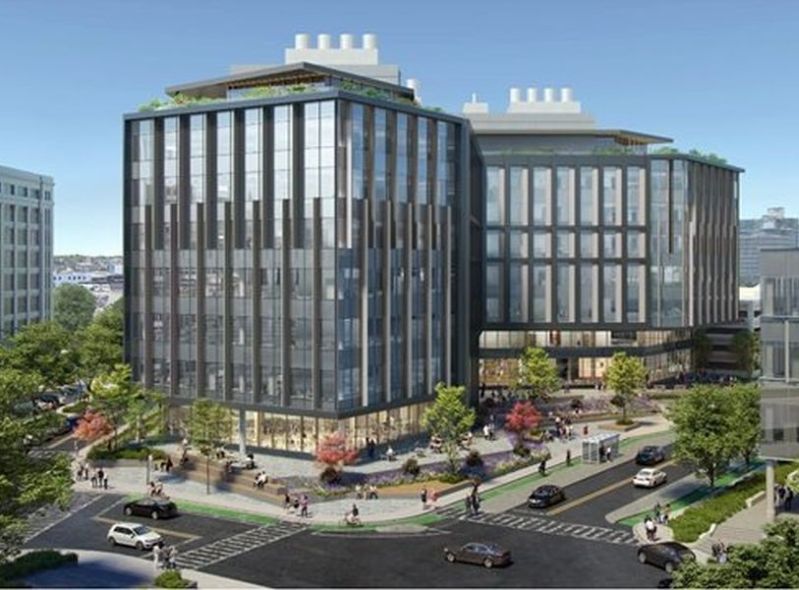
What lessons from all these projects are you applying to new ones?
Egeonu: Both 22 Drydock and the Philadelphia Navy Yard are complex projects, however, the important part is deciding to partner with the right people, and that is a lesson that we’ve applied to a variety of projects.
We decided to put our funds into these projects not only because they are excellent real estate investments, but because we trusted our operating partners and admired their capabilities. It pays dividends in terms of your access to the right opportunities and in terms of execution capability. Related Beal is a phenomenal, world-class partner. We couldn’t have asked for a better one and look forward to continuing to work together in the future.
READ ALSO: How Much Will CRE Investment Increase This Year?
Do you have any advice for underrepresented professionals looking to succeed in CRE?
Egeonu: Real estate is an industry built on relationships. When I began my career in this industry, we were in the depths of the Global Financial Crisis and opportunities were challenging to come by. I reached out directly to many people in my network—some that I had met before and some that I had not—to request a 15-minute sit-down, coffee or to pick their brains. You would be surprised at how many people are open to chatting if you just ask.
I remember in 2009, during the peak of Global Financial Crisis, I needed to move from New York to California for my family. The real estate job market was terrible, yet I found an opportunity because I prioritized meeting whomever in my network would take a meeting in-person. I would even fly from New York to San Francisco or Los Angeles on a red eye just to grab coffee with someone if they were available.
The value of face-to-face conversation has been lost a bit in recent years, but I would encourage anyone who wants to work in real estate to prioritize in-person conversations. Reach out to anyone you can— people with more experience in the industry—and just ask for 15 minutes of their time. The insights, knowledge and relationships you gain early on through this process can and will continue to pay dividends throughout your career.
What key trends do you see shaping the commercial real estate market in 2025 and beyond?
Egeonu: While there is a lot of uncertainty with many forces at play, real estate markets are cyclical and we believe investment opportunities will emerge in 2025. For instance, we are actively seeking opportunities in asset classes such as multifamily and industrial that have had a challenging couple of years due in part to the sharp increase in interest rates starting in 2022. We remain confident in our abilities and partners, and are optimistic that the current market uncertainty will make way for a prosperous future.
The post How a Minority-Led Organization Is Making a Major Impact appeared first on Commercial Property Executive.

